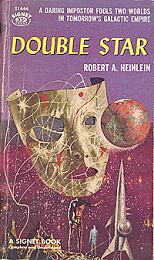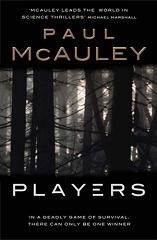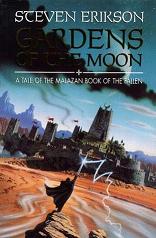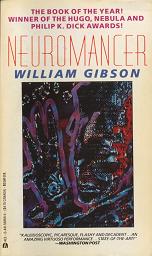
Double Star
Robert A. Heinlein
127 pages
published in 1956
There are times when you can no longer understand why Heinlein has such a good reputation in science fiction, considering his often pernicious influence on other writers and the vileness of his later books, when even the “good Heinleins” do not look so good anymore in retrospect. At such times, it’s good to reread a novel like Double Star and remember why you liked Heinlein in the first place. Double Star has long been one of my favourite Heinleins, but after this reread it may just very well be my alltime favourite. It has all of Heinlein’s strengths and few to none of his weaknesses.
If you’re familiar with Heinlein, especially late Heinlein, you’ll know these weaknesses: a tendency to preach and pontificate, a weakness for obnoxious blowhards as his heroes, an inordinate fondness for incestious relationships… None of these are present here. Instead you get Heinlein at his best, packing a rollicking adventure story, political intrigue and a fully realised future in less than 128 pages.



